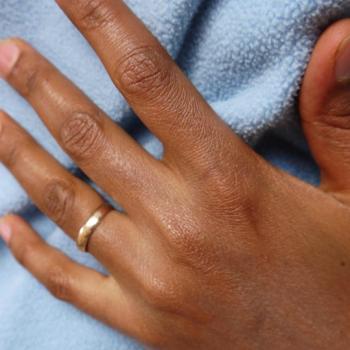
The coronavirus has caused a global crisis demanding immediate attention. Yet there is real concern that in its wake, issues such as early marriage will be forgotten, or that gains made will rollback.
On the 19th May, Young Lives, together with Child Frontiers, Girls Not Brides and GreeneWorks organised a webinar: Marriage and Divorce in Adolescents: Before and After COVID-19 to promote discussion on what measures need to be taken to ensure that life doesn't return to 'normal' after COVID-19, but equally that key gains for gender equality aren't lost.
For many young people, adolescence is a time when the world opens up as they choose their future paths. But for those living in the most marginalised families, their choices remain limited. Twelve million girls are still married under the age of 18 every year, and UN agencies warn of a doubling of this number due to the coronavirus pandemic. During the webinar we argued for a range of specific measures that take young people’s needs into account as the world reorients itself after the current crisis, so that gender equality doesn't become an indirect casualty of the crisis. You can watch a recording of the webinar, and see the presentations used below.
Marriage and Divorce in Adolescents: Before and After COVID-19, why we can't return to 'normal'
The webinar brought together Girls Not Brides’ Agenda for Action in the face of COVID-19, new research from Young Lives and Child Frontiers on married, cohabiting and divorced adolescents, and GreeneWorks’ research on the pathways and obstacles to leaving child, early, and forced marriage. Ramata Molo Thioune, Senior Program Specialist, at IDRC, introduced the Young Marriage and Parenthood project, which IDRC funded and discussed the IDRC's commitment to gender equality and supporting young people who marry early. Venkatraman Chandra-Mouli from the WHO, also joined us to discuss the WHO-Inter Parliamentary Union initiative on child marriage in the context of COVID-19.
Speakers: Nikki van der Gaag, independent gender consultant; Ramata Molo Thioune: Senior Program Specialist, IDRC; Gina Crivello: Senior Researcher, Young Lives Oxford; Gillian Mann: Head of Research and Evaluation, Child Frontiers; Chelsea L. Ricker: lifelong sexual and reproductive rights activist, Rachel Yates: Director of Learning and Regional Implementation, Girls Not Brides; Venkatraman Chandra-Mouli, Adolescents and at-Risk Populations Team, Department of Reproductive Health and Research, WHO
Marriage and Divorce among Adolescents: Before and After COVID-19, why we can't go back to 'normal' from Young Lives Oxford

The coronavirus has caused a global crisis demanding immediate attention. Yet there is real concern that in its wake, issues such as early marriage will be forgotten, or that gains made will rollback.
On the 19th May, Young Lives, together with Child Frontiers, Girls Not Brides and GreeneWorks organised a webinar: Marriage and Divorce in Adolescents: Before and After COVID-19 to promote discussion on what measures need to be taken to ensure that life doesn't return to 'normal' after COVID-19, but equally that key gains for gender equality aren't lost.
For many young people, adolescence is a time when the world opens up as they choose their future paths. But for those living in the most marginalised families, their choices remain limited. Twelve million girls are still married under the age of 18 every year, and UN agencies warn of a doubling of this number due to the coronavirus pandemic. During the webinar we argued for a range of specific measures that take young people’s needs into account as the world reorients itself after the current crisis, so that gender equality doesn't become an indirect casualty of the crisis. You can watch a recording of the webinar, and see the presentations used below.
Marriage and Divorce in Adolescents: Before and After COVID-19, why we can't return to 'normal'
The webinar brought together Girls Not Brides’ Agenda for Action in the face of COVID-19, new research from Young Lives and Child Frontiers on married, cohabiting and divorced adolescents, and GreeneWorks’ research on the pathways and obstacles to leaving child, early, and forced marriage. Ramata Molo Thioune, Senior Program Specialist, at IDRC, introduced the Young Marriage and Parenthood project, which IDRC funded and discussed the IDRC's commitment to gender equality and supporting young people who marry early. Venkatraman Chandra-Mouli from the WHO, also joined us to discuss the WHO-Inter Parliamentary Union initiative on child marriage in the context of COVID-19.
Speakers: Nikki van der Gaag, independent gender consultant; Ramata Molo Thioune: Senior Program Specialist, IDRC; Gina Crivello: Senior Researcher, Young Lives Oxford; Gillian Mann: Head of Research and Evaluation, Child Frontiers; Chelsea L. Ricker: lifelong sexual and reproductive rights activist, Rachel Yates: Director of Learning and Regional Implementation, Girls Not Brides; Venkatraman Chandra-Mouli, Adolescents and at-Risk Populations Team, Department of Reproductive Health and Research, WHO
Marriage and Divorce among Adolescents: Before and After COVID-19, why we can't go back to 'normal' from Young Lives Oxford

